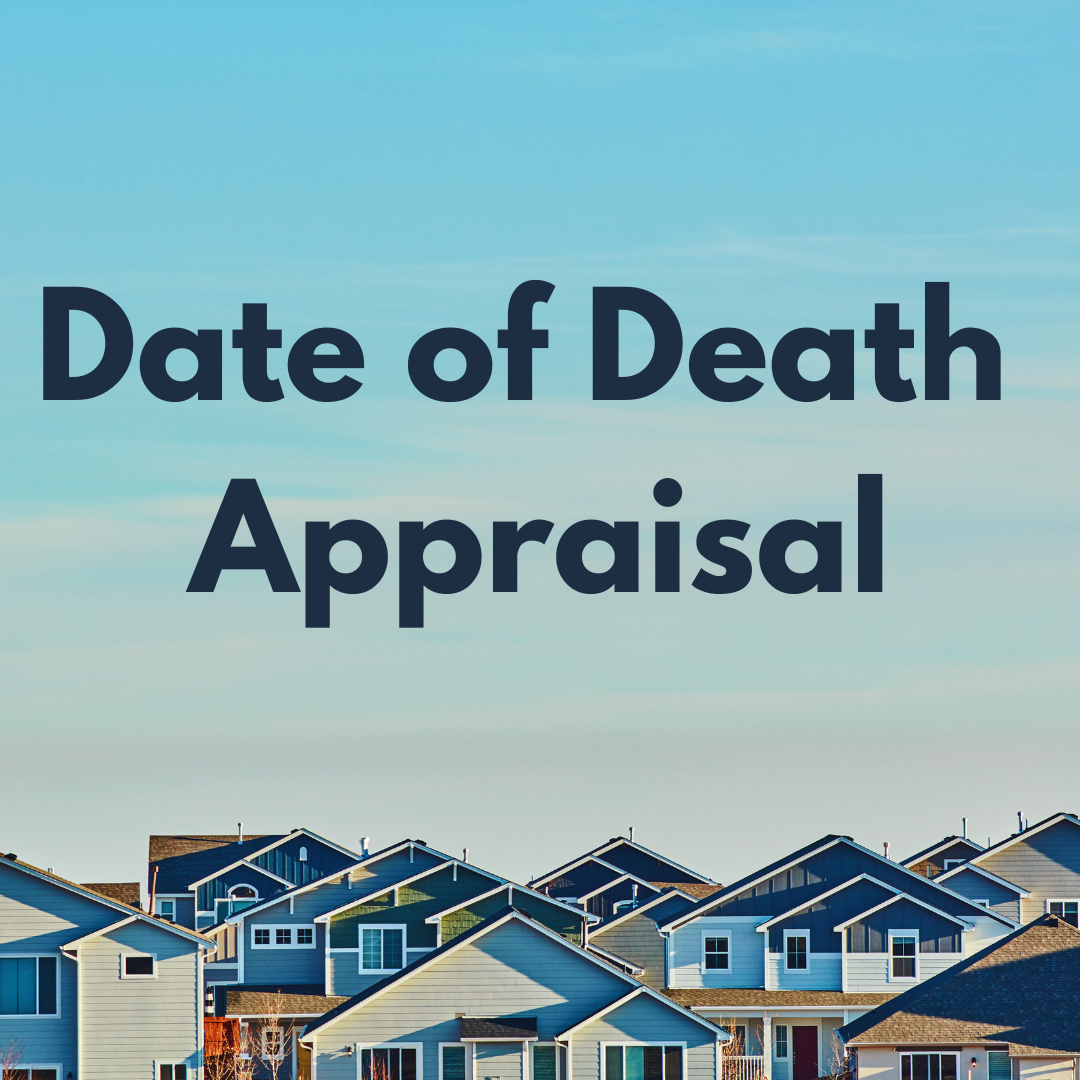Date of Death Appraisal
A date of death property appraisal is an essential step in managing the estate of a deceased person, particularly when real estate is involved. Whether you're an executor, administrator, or successor trustee, knowing about this type of appraisal can help you navigate the complexities of estate management.
What is a Date of Death Property Appraisal?
A date of death property appraisal determines the fair market value of a deceased person’s property as of their date of death. This valuation is crucial for various reasons, including:
1. Estate Tax Calculation: Helps in calculating any estate taxes that may be due.
2. Step-Up in Basis: Establishes a new cost basis for heirs who inherit the property, potentially reducing capital gains tax if they sell the property later.
3. Equitable Distribution: Assists in fairly distributing assets among beneficiaries.
Why is it Important?
1. Accurate Valuation: Provides an accurate market value of the property at the time of the owner's death.
2. Legal Requirements: Often required by the IRS and state tax authorities for estate tax purposes.
3. Beneficiary Interests: Ensures all beneficiaries receive fair value from the estate.
When Do You Need a Date of Death Property Appraisal?
You typically need a date of death property appraisal in the following scenarios:
- Probate Proceedings: When the estate goes through probate, the court may require an appraisal to value the property accurately.
- Trust Administration: If the property is part of a trust, the trustee needs the appraisal to manage and distribute assets according to the trust’s terms.
- Estate Tax Filings: For estates that exceed the federal or state estate tax exemption limits, an appraisal is necessary to determine the estate tax owed.
How to Get a Date of Death Property Appraisal
1. Hire a Professional Appraiser: Look for a certified appraiser with experience in estate appraisals. I do not recommend you use your real estate agent’s estimate of value as a substitute for a professional appraisal.
2. Provide Necessary Documentation: Gather all relevant documents, including the deceased’s death certificate, property deeds, and any previous appraisals or valuations.
3. Appraisal Process: The appraiser will inspect the property, review comparable sales data, and consider market conditions at the time of death to determine the property's value.
Benefits of a Date of Death Property Appraisal
1. Tax Benefits: Establishing a higher market value at the time of death can provide tax benefits through the step-up in basis, reducing capital gains taxes for heirs when they sell the property.
2. Conflict Resolution: An impartial, professional appraisal can help prevent disputes among beneficiaries by providing a clear, unbiased valuation.
3. Financial Planning: Helps executors and trustees plan for any taxes or debts that need to be settled from the estate.
Tips for a Smooth Appraisal Process
1. Choose the Right Appraiser: Ensure the appraiser is certified and has experience with date of death appraisals. Recommendations from attorneys, financial advisors, and Realtors can be helpful.
2. Be Organized: Have all necessary documents ready to streamline the process.
3. Communicate Clearly: Explain the purpose of the appraisal to the appraiser so they understand the importance and urgency of the task.
Final Thoughts
A date of death property appraisal is a crucial step in managing an estate, ensuring accurate valuations for tax purposes, and facilitating the fair distribution of assets. By understanding its importance and following the necessary steps to obtain a reliable appraisal, you can effectively fulfill your responsibilities as an executor, administrator, or successor trustee, while also safeguarding the interests of the beneficiaries.
